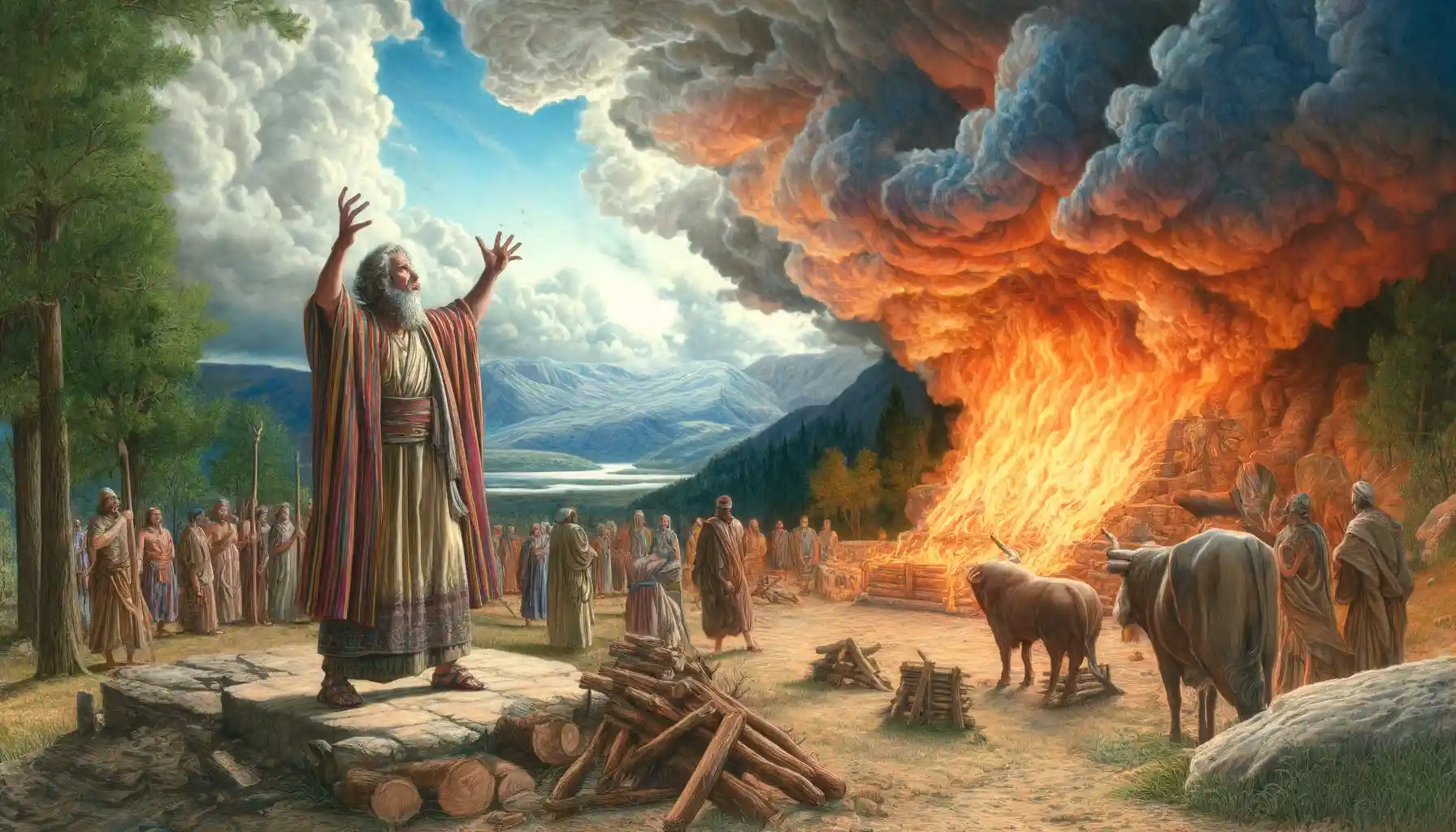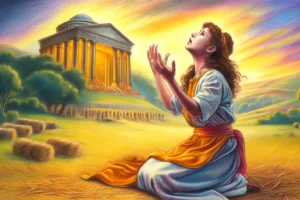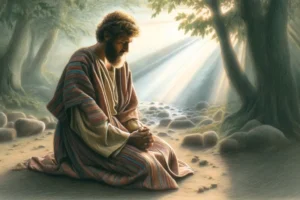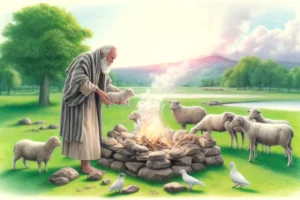
Elijah’s Prayer on Mount Carmel
Elijah, a prominent prophet in the Bible, is known for his dramatic confrontation with the prophets of Baal on Mount Carmel. This event is highlighted in 1 Kings 18, where Elijah’s prayer underscores his zeal for the worship of Yahweh in Israel.
- Context of the Prayer – Elijah’s prayer on Mount Carmel takes place during a contest against the 450 prophets of Baal to determine whose god is truly God. This occurs during a severe famine in Israel, symbolizing the spiritual drought in the nation.
- Timing of the Prayer – Elijah’s prayer is strategically offered at the time of the evening sacrifice, which aligns his actions with the prescribed times of worship in the Temple, emphasizing the legitimacy and sincerity of his appeal to God.
- Content of the Prayer – The prayer is concise and focused solely on the vindication of God’s sovereignty and the turning of Israel’s heart back to God: “Answer me, O Lord, answer me, so these people will know that you, O Lord, are God, and that you are turning their hearts back again” (1 Kings 18:37).
- Immediate Response – Following Elijah’s prayer, fire from heaven consumes the sacrificial bull, the wood, the stones, the soil, and even the water in the trench around the altar, demonstrating God’s powerful presence and approval.
- Impact of the Prayer – The miraculous response leads to the people of Israel acknowledging Yahweh as the true God. This event marks a significant victory for the prophetic ministry of Elijah against idolatry in Israel.
Historical and Cultural Context
Elijah’s prayer on Mount Carmel is set against the backdrop of King Ahab’s reign in Israel, a period marked by the widespread worship of Baal, a Canaanite god associated with rain and fertility. This was a direct challenge to Yahweh’s sovereignty, leading to a severe famine as a divine response to Israel’s idolatry. Elijah, as God’s prophet, steps into this context with a dramatic public contest to demonstrate Yahweh’s supremacy over Baal and to call Israel back to faithful worship.
Theological Insights
- Sovereignty of God
- Elijah’s prayer is a direct affirmation of Yahweh’s sovereignty over all aspects of life, including the weather, which Baal purportedly controlled. The prayer is succinct and to the point, focused entirely on demonstrating God’s power and authority so that the people might recognize Him as the one true God.
- Repentance and Restoration
- The prayer not only seeks a miraculous sign but also the restoration of the people’s faith. Elijah asks for a demonstration that will turn the people’s hearts back to God. This underscores a central theme in prophetic ministries: the desire for repentance and spiritual renewal within the community.
- God’s Immediate Response
- The immediate and dramatic response to Elijah’s prayer—fire from heaven consuming the sacrifice—serves as a powerful divine endorsement of his prophetic ministry and a public denunciation of Baal worship. This event emphasizes that true power and redemption lie only with Yahweh.
Cultural and Religious Impact
- Reaffirmation of Monotheism: The event on Mount Carmel was a significant affirmation of monotheism amidst the polytheistic practices prevalent in Israel at the time. It highlighted the ineffectiveness of idol worship and reinforced the teachings of the Torah regarding the worship of Yahweh alone.
- Role of Prophets: Elijah’s actions exemplify the role of prophets as both challengers of societal norms and as advocates for divine truth. Prophets often stood in opposition to both political and religious corruption, calling people back to a covenant relationship with God.
- Liturgical Significance: This story has echoed through Jewish and Christian liturgies as an example of the power of prayer and the faithfulness of God to respond to the needs of His people. It serves as a dramatic reminder of God’s readiness to reveal Himself and act in human history when His people call upon Him sincerely.
Conclusion
Elijah’s prayer on Mount Carmel remains one of the most striking narratives in the Bible, encapsulating themes of divine justice, the power of true faith, and the importance of national and personal repentance. It not only marked a decisive moment in Israel’s religious history but also continues to inspire faith in the supremacy and immediacy of God’s power to intervene in the lives of His followers.



